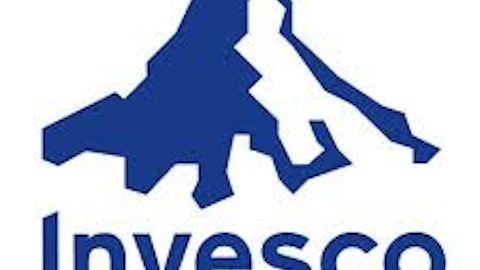
Mortgage lenders usually package together mortgages with similar attributes and sell them as securities. These securities are known as mortgage backed securities. Some of the mortgages are issued by government Agencies, which is why they are called Agency MBS, while the issued by private lenders are called non-Agency MBS.
The Agency MBS space is currently surrounded by speculations about a possible exit by the Fed. Given the situation, companies that invest in Agency MBS are concerned about their book values, which are expected to plunge. Ellington Financial LLC (NYSE:EFC) is one such company. However, I believe its book value is safe. Let’s see how.
Business strategy
Ellington Financial LLC (NYSE:EFC) is operating as a specialty finance company since 2007 to acquire and manage mortgage related assets of a hybrid nature. You may think it is a REIT, but it’s not. It is structured as a limited liability company; therefore, it has the ability to opportunistically hedge credit risk without the limitations of the REIT rules.
Ellington targets an equity allocation of 85% to non-Agency MBS and 15% to Agency. Besides, the management is also including the asset backed securities (ABS) sectors, including commercial mortgage backed securities and commercial non-performing loans.
What’s going on in Agency MBS space?
Volatility in the Agency market remains as the timing and method of the Fed’s exit from this market remains a question in investors’ minds. As a result, Agency prices are variable. Therefore, the management at Ellington Financial LLC (NYSE:EFC) continues to focus of securities with high prepayment-protected attributes to maintain low conditional prepayment rates (CPRs). CPR is a measure to calculate the prepayments of a security.
Besides, the rate on 30-year mortgages has been rising since the launch of QE3. In this environment, you can expect the company to generate 2.1% – 2.2% of net interest spread on its Agency purchases, which is 59 basis points (bps) more than the lows in September 2012. However, during the same time frame, the costs of funds have risen just 7 bps, only partially offsetting the increase in asset yields. The prospects for book value growth remain challenging in 2013.
What’s going on in the non-Agency MBS space?
On the other hand, non-Agency MBS are experiencing yield compressions as a result of sustained rally in mortgage credit against the backdrop of improving housing fundamentals and favorable supply/demand dynamics. Another consequence of this is stronger book values.
The rally in the first and the second quarter of the current year have translated into 50 bps lower loss-adjusted yields. You can expect Ellington Financial LLC (NYSE:EFC) to continue its focus on the non-Agency sector, although with a focus on the commercial MBS space in the coming quarters.
How will it help Ellington?
The company has constructed its investment portfolio in a way that you should expect little book value depreciation going forward. First, Agency MBS, which may cause a decline in the book value, account for only 15% of the company’s equity. Second, the non-Agency securities are experiencing a rally, which will lead to a hike in the book value. Therefore, book value compression would be one of the last issues Ellington Financial LLC (NYSE:EFC)’s investors should be worried about.
Besides, since mREITs’ hedging is limited due to the IRS rules, Ellington can benefit from increased hedging. mREITs are not allowed to include income from their derivatives and other hedging transactions as part of their REIT taxable income. Therefore, mREITs are not encouraged to employ major hedging.
Therefore, I believe Ellington Financial LLC (NYSE:EFC) is the best bet among the companies that invest in mortgage backed securities.
Competition
Ellington competes with other specialty finance companies and mREITs for buy MBS. Among other mREITs, ARMOUR Residential REIT, Inc. (NYSE:ARR)’s investors should be more worried about their company’s book value.
The company employs a very high level of leverage of 9.2 times, which makes the book value more interest rate sensitive and magnifies the adverse results.
Further, its recent MBS acquisitions don’t perform well under a rising interest rates environment, which means a decline in the asset yield cannot be ruled out.
In short, the ARMOUR’s book value and its spread are under pressure.
Annaly Capital Management, Inc. (NYSE:NLY) happens to be the largest mREIT and also happens to employ a relatively low leverage of 6.7 times.
This low leverage will act as a cushion to the company’s book value. Besides, the company’s investments in commercial real estate debt make the book value further insensitive to changes in the interest rates.
Less compensation expense as a result of the change in the management structure will further support the coming quarter’s book value. Therefore, Annaly Capital has a better shot, compared to ARMOUR Residential under the prevailing scenario.
Conclusion
While Annaly Capital’s low leverage might be able to provide some cushion to its book value, I believe Ellington Financial LLC (NYSE:EFC) is best positioned to excel under the given situation. ARMOUR, however, remains my least favored mREIT amid speculations that Fed might exit the Agency MBS markets soon.
Adnan Khan has no position in any stocks mentioned. The Motley Fool has no position in any of the stocks mentioned.
The article Is Your Company’s Book Value Safe? originally appeared on Fool.com.
Copyright © 1995 – 2013 The Motley Fool, LLC. All rights reserved. The Motley Fool has a disclosure policy.



